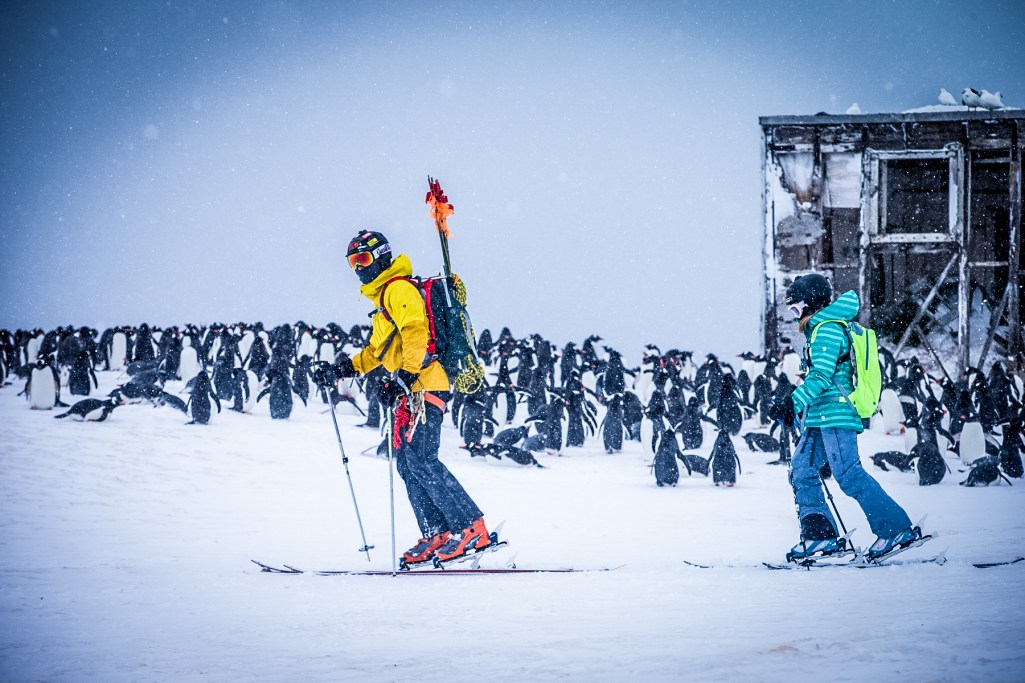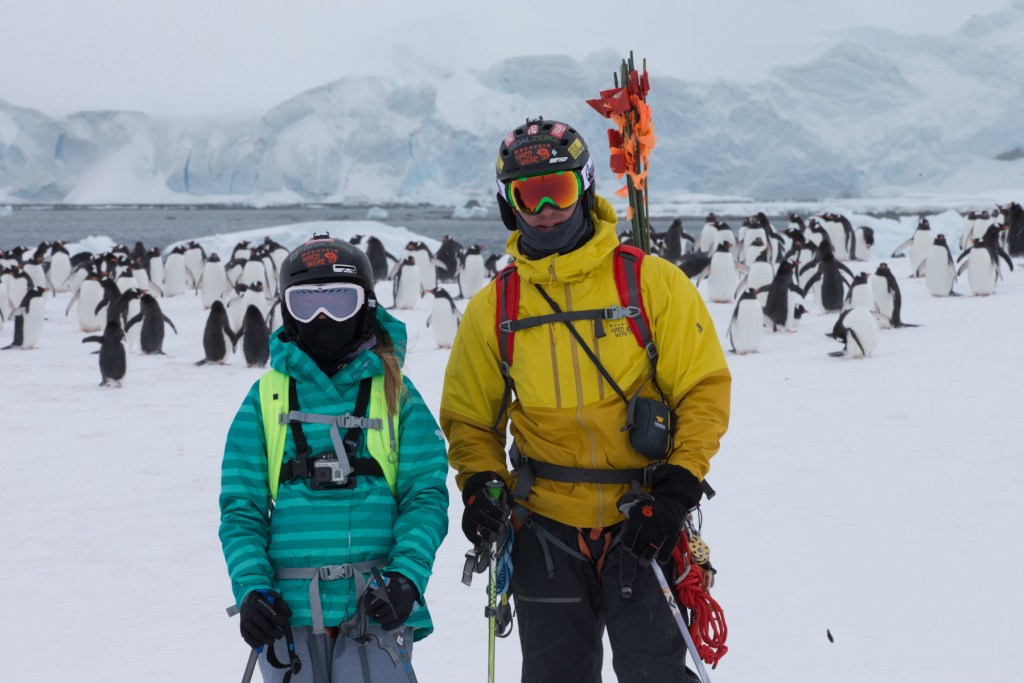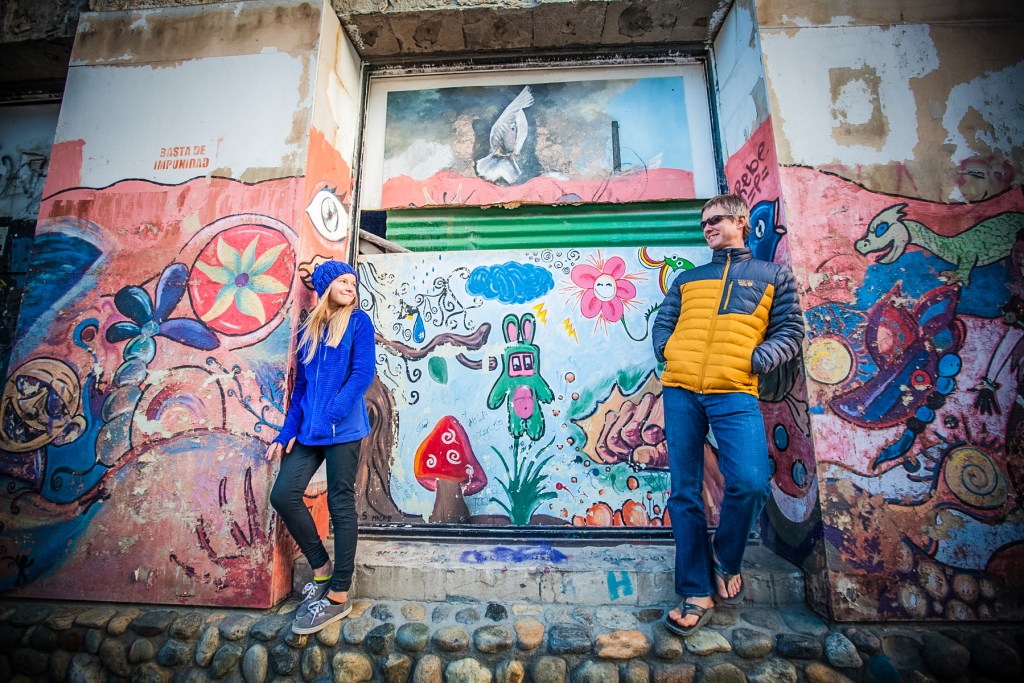Mike Libecki is a National Geographic Explorer and veteran of 60 climbing and ski expeditions.
More notably, however, he is an outspoken ambassador for the passionate pursuit of dreams, a guy who exudes joy and a dedicated dad. “Dream big, and climb those dreams,” “The time is now—why ration passion,” and “It’s not only life, but the quality of life” are common Libecki-isms.

So when his eleven-year-old daughter, Lilliana, asked her dad if they could go on a father-daughter ski expedition to Antarctica to see the penguins, he couldn’t wait to comply.
We caught up with Mike at his home in Utah to learn more about the roots of his own passion, his trip with Lilli, and to get his thoughts on getting your kids outside.
Who introduced you to adventure?
ML: My mom’s parents were huge influences in my life. In the 1930s, when my grandfather was 14, he ran away from home in North Dakota to Yosemite. That’s how my family ended up in California. I grew up near Yosemite. Someone took me top-roping when I was 17. It was a turning point in my life—all I wanted to do was climb. I was pursuing a math degree in college, but to me the only mathematical equation worth pursuing was climbing. When I dropped out of college and I was getting flak from the rest of my family, my Grandma Bertha encouraged me. She said, “You go climb and live your passion.” That set the stage for my life today, and it’s a blessing I also give to my daughter.
What role did the outdoors play in your childhood?
ML: We were fishermen and hunters. I didn’t know what climbing or skiing was until I was 13 or 14 years old. I suffered hard as a kid—we’d go deer hunting and camp out sleeping on the ground. I’d wake up at 5am with frozen legs and feet. My dad would tell me to go make the fire and cook some food if I wanted to warm up. I was eight years old when I had to clean my first deer. It blows me away how hard we roughed it. My dad was teaching us how to work hard and kick butt. He taught me that if you are going to eat meat, you have to kill it yourself. The options are you kick butt or you don’t. It’s true for life; it’s true for expeditions.

You’ve said several times that it was exciting and scary for you to bring your daughter on an expedition to Antarctica. How so?
ML: It wasn’t scary to bring her to Antarctica. It was one-hundred-percent safe. On my personal expeditions, I have to decide between dangerous and too dangerous. I know what I do is one-hundred-percent safe mathematically—but I can’t screw up. This trip was easy, simple and safe because we prepared and trained for it. But it made me think, “What if she really wants to do real-deal expeditions—to push herself try to define dangerous and too dangerous?” It’s a joyful kind of scariness.

What was the highlight of the Antarctica trip for you?
ML: Seeing Lilli be proud of herself was the best moment of my life. Multiple times, she’d almost give up. Then the next thing I know she’s pushing her edge of potential, deciding that it wasn’t so bad. It’s particularly interesting to me because I am a self-proclaimed addicted expedition adventurer. Every time I think the expedition I was just on was hardest expedition of my life—it turns out it was training for the next one, which is even harder.

You say that when you call Lilli from your expeditions, you often cry because you miss her. Did you cry when you were in Antarctica with her?
ML: I cried tears of joy—of absolute, organic enthusiasm and joy of being out there with Lilli. It was a daddy-daughter partnership—she was learning what it means to be a partner, to be safe, to ask questions, to absorb the environment, and to talk and communicate about it. She’s a natural mountaineer. We were out there in 60 mph winds. She repeated back to me the slogans I have repeated to her for her whole life, like TBS—tough, brave and strong. I’ve always told her that we always have to have optimism. On the trip, I thought one of my ski climbing skins blew off in the storm. “Dad—optimism,” Lilli said to me. “I think your skin is in my pack.” She was reminding me of things I taught her when I lost it for a moment. It was one of most beautiful moments I can remember. We had crazy weather but she kept saying, “Lets do one more run—we’re here.” She is an impressive girl.
How do you and Lilli cope when you’re on the road?
ML: Without the support of Lilli’s mom, I couldn’t do what I do. My daughter is happy, healthy and taken care of when I am gone thanks to her mom. Her mom is my hero, and lets me lead the lifestyle of an explorer climber.
When I am gone, I send Lilli flowers at school every week. When she was little, I made stand-up cardboard photos of myself and propped them up in her room when I was traveling. I didn’t want her to forget about me. Now she can take satellite phone calls—I call her at school all the time. I want to be the best dad I can be. If I am gone, I still want her to have a reminder that I love her. I have to leave periodically—that how it is. Anything worth doing has sacrifices and compromises. But we make the best of it.

In raising Lilli, what’s been your Libecki-ism?
ML: It’s up to parents to create the environment that their children are a product of. I want to inspire my daughter to pursue her passion whatever it is. Why ration passion? I ask that question no matter what. I want to inspire her to be the next generation to take care of our planet. Humans need to take care of wild places. There is nothing like being in the wild and in nature. Everyone needs a healthy dose of nature to live a healthy life—to be cleansed by our planet. I hope I can inspire others to do this too, not just my daughter.
Photo credit: ©Mike Shirf.
Video courtesy of Mountain Hardwear.
